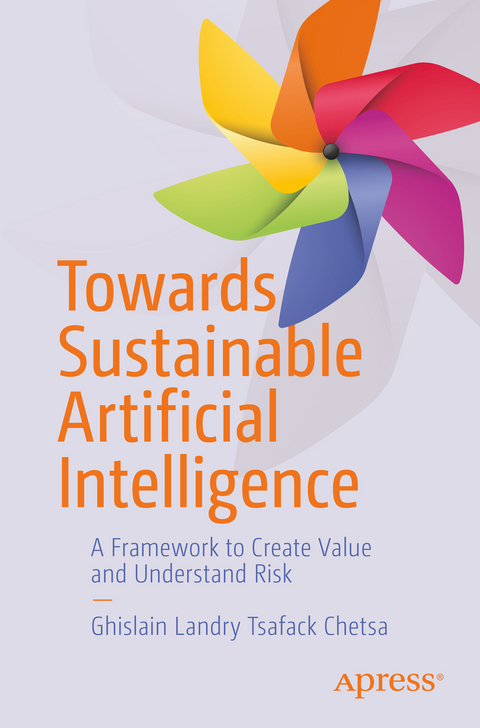
Towards Sustainable Artificial Intelligence
Apress (Verlag)
978-1-4842-7213-8 (ISBN)
This book discusses the concept of sustainability in the context of artificial intelligence. In order to help businesses achieve this objective, the author introduces the sustainable artificial intelligence framework (SAIF), designed as a reference guide in the development and deploymentof AI systems.
The SAIF developed in the book is designed to help decision makers such as policy makers, boards, C-suites, managers, and data scientists create AI systems that meet ethical principles. By focusing on four pillars related to the socio-economic and political impact of AI, the SAIF creates an environment through which an organization learns to understand its risk and exposure to any undesired consequences of AI, and the impact of AI on its ability to create value in the short, medium, and long term.
What You Will Learn
See the relevance of ethics to the practice of data science and AI
Examine the elements that enable AI within an organization
Discover the challenges of developing AI systems that meet certain human or specific standards
Explore the challenges of AI governance
Absorb the key factors to consider when evaluating AI systems
Who This Book Is For
Decision makers such as government officials, members of the C-suite and other business managers, and data scientists as well as any technology expert aspiring to a data-related leadership role.
Ghislain Tsafack is Head of Data Science at Elemental Concept 2016 LTD (EC), where he leads the organization’s AI strategy. As part of this, he leads the company’s work in leveraging the latest advances in AI to help clients create value from their data and auditing AI systems developed by third parties on behalf of potential investors. Ghislain’s work in the healthcare industry at EC involves supporting the development of data related healthcare products for his clients. This made him appreciate the challenges and the complexity of developing AI systems that people trust to make the right decision for them and stimulated him to write this book.Before joining EC Ghislain held positions as data scientist in the telecommunications and energy sectors. Prior to this, Ghislain worked as an academic at the French National Institute for Research and Automation (INRIA) and the University of Lyon 1. His work primarily focused on analyzing the behaviors of high performance systems to improve their energy efficiency and gave him the opportunity to co-author several scientific books presenting methodologies for improving the energy efficiency for large scale computing infrastructures. He holds a PhD in computer science from Ecole Normale Supérieure of Lyon, France.
Chapter 1: AI in our Society.- Chapter 2 Ethics of the Data Science Practice.- Chapter 3 Sustainable AI Framework (SAIF): Overview of SAIF framework.- Chapter 4 Intra-organizational understanding of AI: Towards Transparency.- Chapter 5 AI Performance Measurement: Think business values.- Chapter 6 SAIF in Action: A Case Study.- Chapter 7 Alternative Avenues for Regulating AI Development.- Chapter 8 AI in the Medical Decision Context: The use case of healthcare.- Chapter 9 Conclusions and discussion.
| Erscheinungsdatum | 13.08.2021 |
|---|---|
| Zusatzinfo | 8 Illustrations, black and white; XIII, 140 p. 8 illus. |
| Verlagsort | Berkley |
| Sprache | englisch |
| Maße | 155 x 235 mm |
| Themenwelt | Geisteswissenschaften ► Philosophie ► Ethik |
| Informatik ► Netzwerke ► Sicherheit / Firewall | |
| Informatik ► Theorie / Studium ► Künstliche Intelligenz / Robotik | |
| Schlagworte | AI bias • AI governance • algorithmic bias • Data asset • Data science controls • data science process • data science risk management • ethics • Interpretability • privacy • Sustainable AI • sustainable AI framework |
| ISBN-10 | 1-4842-7213-7 / 1484272137 |
| ISBN-13 | 978-1-4842-7213-8 / 9781484272138 |
| Zustand | Neuware |
| Informationen gemäß Produktsicherheitsverordnung (GPSR) | |
| Haben Sie eine Frage zum Produkt? |
aus dem Bereich


